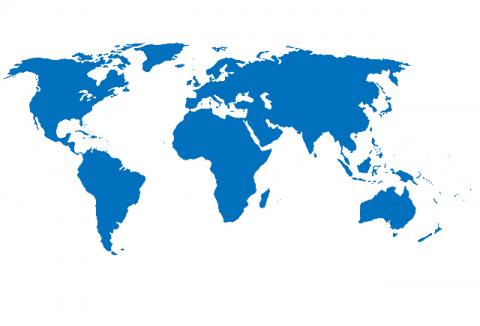UN, OSCE and other international organisations

This page provides information on FRA cooperation with:
- United Nations
- Organization for Security and Co-operation in Europe
- Other International Organisations
United Nations
The Agency cooperates with a wide range of UN bodies. For instance, it compiles targeted findings from EU Member States and submits them to the UN human rights treaty bodies and special procedures. It also feeds the UN’s Universal Periodic Review process.
FRA regularly meets with the UN Office of the High Commissioner for Human Rights (OHCHR), the UN High Commissioner for Refugees (UNHCR), the UN Office on Drugs and Crime (UNODC), as well as the United Nations Development Programme (UNDP), UN Children’s Fund (UNICEF), the International Organization for Migration (IOM), and the International Labour Organization (ILO).
Focusing FRA’s work on the Sustainable Development Goals
The Sustainable Development Goals (SDGs) set global development targets for the period 2015–2030. They replace the Millennium Development Goals, which covered 2000 to 2015. Coordinated by the UN, the 17 SDGs set the framework for much of the world’s development and multilateral cooperation. The table below provides an overview of the SDGs, linking them to the most relevant Articles in the EU's Fundamental Rights Charter. It also gives examples of recent FRA projects.
Tools linking SDGs to human rights instruments:
- The Danish Institute for human rights has a detailed tool linking SDGs with international human rights instruments
- Overviews of the respective organisations links to the SDG compiled by the Council of Europe
- EU and the Sustainable Development Goals
- 'SDGs & me' - an interactive Eurostat tool for exploring EU SDG indicators and comparing country data
States and civil society, but also entities such as corporations, contribute to delivering on the SDGs. Efforts at the start of the 2015–2030 period focus on populating the 230 indicators with data, organised under 169 targets and the 17 SDGs. FRA is contributing to this by working with Eurostat to populate indicators at the EU level and by contributing to methodological consultations at the UN level.
The UN is commemorating the 70 year anniversary of the Universal Declaration of Human Rights on 10 December 2018 with the year-long campaign Stand up for human rights.
Organization for Security and Co-operation in Europe
FRA closely cooperates with the Organization for Security and Co-operation in Europe (OSCE), especially its Office for Democratic Institutions and Human Rights (ODIHR). This comprises joint activities in EU Member States.
Examples of this cooperation include:
Combating hate crime
FRA and ODIHR work together to help states record and collect hate crime data. They jointly organize national workshops providing technical assistance to national law enforcement and criminal justice authorities. This initiative followed the launch of ODIHR’s Practical Guide on Hate Crime Data Collection and Monitoring in 2014. ODIHR also takes part in the Subgroup on methodologies for recording data on hate crime, which FRA coordinates.
Uncovering the extent of violence against women
FRA’s survey on violence against women became a source of reliable and comparable data on the extent, nature and consequences of violence women in EU Member States. The Gender Section of the OSCE Secretariat launched a similar survey on the Well-being and Safety of Women based on FRA’s survey. It covers a number of non-EU countries in South East Europe, Eastern Europe and the South Caucasus. FRA has provided technical advice throughout the OSCE survey - the first results are expected in 2019.
Promoting political participation of people with disabilities
FRA is part of the ODIHR group of experts on participation of people with disabilities in political and public life. This group advises ODIHR on disability-related issues and relevant developments in different OSCE participating States. The group first met in Skopje on 22 June 2017.
FRA also cooperates closely with the OSCE High Commissioner on National Minorities (HCNM).
Other International Organisations
In addition, the Agency cooperates with other international organisations such as the Organisation for Economic Co-operation and Development (OECD), the International Centre for Migration Policy Development (ICMPD) and other entities with an international character, in particular the EEA and Norway Grants.